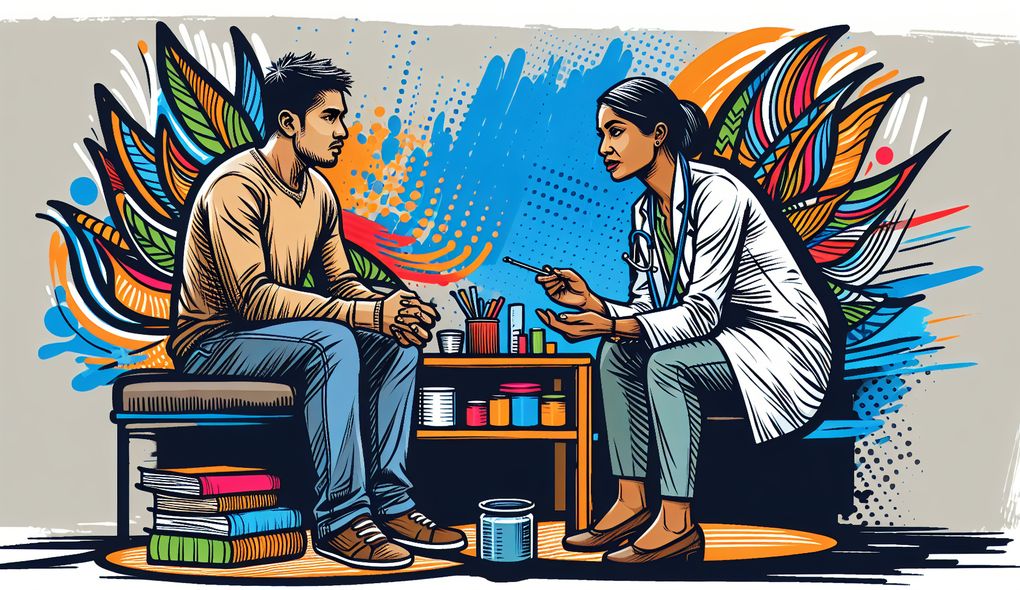Tell me about a time when you had to handle a challenging client situation in your role as a Substance Abuse Counselor.
INTERMEDIATE LEVEL

Sample answer to the question:
I once had a challenging client situation when I was working as a Substance Abuse Counselor. The client was resistant to treatment and often expressed frustration and anger during our sessions. I approached the situation by actively listening to the client's concerns and validating their emotions. I provided them with a safe space to express themselves and guided them towards healthier coping mechanisms. Through consistent therapy sessions and building a trusting relationship, I was able to help the client make progress in their recovery journey.
Here is a more solid answer:
In my role as a Substance Abuse Counselor, I encountered a challenging client situation that required me to employ various skills and strategies. The client was resistant to treatment and exhibited anger and frustration during our sessions. To address this, I utilized evidence-based therapy techniques, including cognitive-behavioral therapy and motivational interviewing. I actively listened to the client's concerns, validated their emotions, and provided a safe space for them to express themselves. I also collaborated with a multidisciplinary team of healthcare professionals to coordinate care for the client, ensuring a comprehensive treatment approach. Due to my empathetic and patient approach, the client felt supported and gradually started making progress in their recovery journey.
Why is this a more solid answer?
The solid answer provides specific details on how the candidate handled the challenging client situation, including the use of evidence-based therapy techniques and collaboration with healthcare professionals. It demonstrates the candidate's interpersonal and communication skills, ability to handle sensitive information with confidentiality, empathy and patience in dealing with clients in recovery, and good judgment in utilizing appropriate treatment modalities. However, it could still be improved by incorporating more information about the candidate's ability to set clear goals and objectives in individualized treatment plans.
An example of a exceptional answer:
During my time as a Substance Abuse Counselor, I encountered a challenging client situation that required a comprehensive and strategic approach. The client was resistant to treatment and expressed anger and frustration during our sessions. To address this, I assessed the client's substance abuse history and treatment requirements in order to develop an individualized treatment plan. The plan included clear goals and objectives that were discussed and agreed upon with the client. I utilized evidence-based therapy techniques such as cognitive-behavioral therapy, motivational interviewing, and dialectical behavior therapy to address the client's specific needs. Additionally, I collaborated with a multidisciplinary team of healthcare professionals to ensure a holistic and coordinated approach to care. I also maintained confidential records of the client's therapy and progress, prioritizing their privacy and confidentiality. Through my empathetic and patient demeanor, I created a therapeutic alliance with the client, allowing them to feel supported and understood. Over time, the client's resistance diminished, and they began actively engaging in the treatment process, leading to positive outcomes in their recovery journey.
Why is this an exceptional answer?
The exceptional answer provides a comprehensive response that covers all the evaluation areas mentioned in the job description. It includes specific details on how the candidate assessed the client's needs, developed individualized treatment plans with clear goals and objectives, and utilized various evidence-based therapy techniques. The answer also highlights the candidate's collaboration with a multidisciplinary team, maintenance of confidential records, and their empathetic and patient approach in building a therapeutic alliance with the client. It demonstrates the candidate's strong interpersonal and communication skills, ability to handle sensitive information with confidentiality, empathy and patience in dealing with clients in recovery, and good judgment in utilizing appropriate treatment modalities. Additionally, it showcases the candidate's commitment to ethical standards and ongoing professional development.
How to prepare for this question:
- Familiarize yourself with different evidence-based therapy techniques, such as cognitive-behavioral therapy, motivational interviewing, and dialectical behavior therapy.
- Reflect on challenging client situations you have encountered and consider how you effectively addressed them. Be ready to provide specific examples.
- Highlight your ability to collaborate with healthcare professionals and work as part of a multidisciplinary team. Discuss how you coordinated care for clients.
- Emphasize your commitment to maintaining client confidentiality and adhering to ethical standards.
- Discuss the importance of ongoing professional development in the field of substance abuse counseling.
What are interviewers evaluating with this question?
- Interpersonal and communication skills
- Ability to handle sensitive information with confidentiality
- Empathy and patience in dealing with clients in recovery
- Good judgment and decision-making abilities

